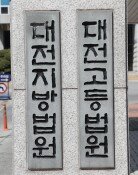S. Korean president should persuade China to embrace Japan
S. Korean president should persuade China to embrace Japan
Posted June. 27, 2013 09:17,
On Tuesday, the 63rd anniversary of the outbreak of the Korean War, I vividly remembered a Korean movie that I saw about 10 years ago. The movie was Brotherhood, which featured Jang Dong-gun and Won Bin. While I was unable to hold back my tears from the tragedy of the two brothers who ended up fighting on different sides, I was also overwhelmed by the realistic combat scenes that resembled Hollywood war films.
Even those who did not watch the movie would know it was the Chinese Peoples Volunteer Army that entered the war after the North Korean military retreated to Pyongyang and pushed the United Nations troops back to the current military demarcation line. It is well known that Mao Zedongs oldest son participated in the war and lost his life. That is why China and North Korea are as close as lips and teeth. Had it not been for Chinas participation, the Korean Peninsula would have been reunified.
I am not talking about an old story. When Chinese President Xi Jinping was a vice president a few years ago, he called the Korean War a war of justice that defended peace against aggression," saying that the two neighbors had never forgotten the friendship forged in blood. He might have exaggerated the ties a little bit because back then, he was speaking to a group of Chinese veterans who fought in the Korean War. Nevertheless, I winced at the remarks.
South Korean President Park Geun-hye will hold a summit with the Chinese president in Beijing today. Though 21 years have passed since the two countries established diplomatic relationship, this is the first time for a South Korean president to visit China before Japan. China is welcoming Park who accompanied by a large number of business delegates.
I have no intention of asking Xi about what happened with Chinas friendship with the North. I am deeply moved by Chinas welcoming the South Korean president as if Beijing wanted to show it off to North Korean leader Kim Jong Un. What would he be feeling right now?
Soon after the Norths third nuclear test in March, I met with a Chinese researcher of North Korea in Tokyo, whom I met for the first time in Shenyang, China last fall. At that time, the researcher predicted that the North Korean leader would visit Beijing soon as a new leadership took over China.
Although he presented the grounds for his prediction, it proved wrong. He said that Kim Jong Un chose nuclear weapons and missiles over China. It is no wonder that Kims visit to China was delayed since Pyongyang conducted a nuclear test following a long-range ballistic missile launched at the end of last year.
As has been well known, China has become stricter on the North. Saying that it was the first time that Beijing did so, the Chinese scholar cited three reasons for Beijings anger.
First, Pyongyang did not listen to China despite Beijings sincere request for a stoppage in the nuclear test. Second, Chinese people were unprecedentedly angry about the North. Protesters swarmed to the North Korean embassy in Beijing, and Chinas cyberspace was flooded with criticisms of the North. Third, the nuclear test threw cold water on Chinas new leadership. The situation did not allow Xi to adhere to friendship with Pyongyang.
In other words, North Korea chose to become a nuclear state that could pose a threat to the U.S. despite Chinas strong anger. The third-generation leader of the North must have taken a tougher stance than his later father, thinking that he would not act as he is told by China. After escalating tensions on the Korean Peninsula, Pyongyang suggested a direct dialogue with Washington. This must have been the scenario the North was thinking.
Presidents Park and Xi visited Washington one after another for a summit with U.S. President Barack Obama. And now, the South Korean president is visiting China. Watching the situation closely, Pyongyang has proposed to return to the six-party talks on its denuclearization and hold talks with the South. Hectic diplomatic haggling is under way.
In the meanwhile, Japan has been left out of such moves. Tokyos relationships with Beijing and Seoul have become strained over territorial and history issues. The three-way summit to be held in Seoul in May involving leaders of South Korea, China and Japan has been postponed. The Seoul-Beijing summit has also become an event for Tokyo to see, keenly making feel the changes of times.
No matter how strict China has become on North Korea, it remains the same that Beijing will be Pyongyangs last resort. It is true that China and South Korea have different views about democracy and human rights. In addition, Chinas military expansion is making many other countries nervous. Even though it is good that the South Korean president is seeking to overcome the unfortunate past of 60 years ago and create a new era with China, how should it be seen that Seoul is strict about only Japans past.
I know well that there are problems with Japan. However, President Park is seeking peace and stability in Northeast Asia under her Seoul Process initiative of regional cooperation. Her name as a new leader will go higher globally only if she persuades China to embrace Japan. Peace and prosperity in East Asia would not be possible without the cooperation among Seoul, Beijing and Tokyo.




![“배달 시키면 버렸는데”…피자 가운데 ‘그것’ 200% 활용 꿀팁 [알쓸톡]](https://dimg.donga.com/c/138/175/90/1/wps/NEWS/IMAGE/2026/01/07/133111146.3.png)


